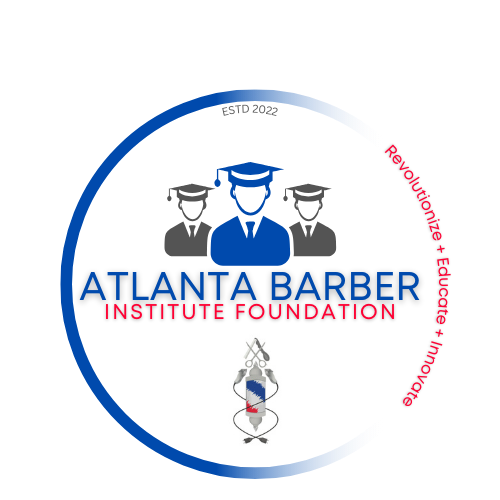
Technology For Learning
Atlanta Barber Institute introduces “No Books, No Pens & No Paper.” This is an effort to support the students & the environment. It’s the ATLBI’s unique way of Going Green. The increasing adoption of tablets, mobile phones and mobile devices has spearheaded the demand for mobile learning, or “m-Learning / e-Learning” as the demand continues to rise. The traditional classroom setting has long passed. The days of a teacher, textbook and chalkboard have evolved. An instructor can now connect with remote students as if they were all in the same class setting. Also, barbering classes can now be conducted in a virtual environment to sharpen skills while fulfilling the state requirement for licensing.
Our research shows that the demand for our services is high all over Georgia, especially in the Atlanta metropolitan area; therefore, we have planned each and everything to attract and serve this huge demand. We are ready to implement our plans but we lack funding. Once we secure the required funding, we will not only start working according to our plans but soon get a tremendous recognition in the targeted market(s).
Changing the Way America Learns through 3D Technology
Vizitech USA is an education and training company specializing in 3D Technology, Augmented Reality (AR), and Virtual Reality (VR) learning programs. They take complex concepts and processes, such as frog dissection in the classroom or safety training in the workplace, and recreate them virtually for an interactive, safe learning experience.
The program replicates the industry practices along with the environment from a safety, education, training and licensing perspectives. The scenarios in the content are both real and imagined, and they will help students learn better, faster and cheaper. The program will basically simulate a user’s physical presence and environment in a way that allows the user to interact with it. The experience will trigger a real human reaction - touch, sight and hearing.
It will allow the student to completely engage in the setting, thus honing skills while fulfilling licensing requirements. The program will give student trainees the freedom to explore and manipulate scenarios, with zero liability.
The program will mirror curriculums for licensed institutions for learning and meet all state and federal requirements.
Experience a new way to learn through the Vizitech USA's Rock Stars Augmented Reality (AR) App. This app displays the wonders of learning with AR as it brings your textbooks and worksheets to life!
Explore new dimensions in education in an experiential format that creates new possibilities for greater detail from flat subjects. For instance, calculate the area of a cylinder using shapes within a new learning space above printed images and text books. Watch virtual teachers and historical figures teach like they are right on the table in front of you! These insights and more are available inside this new Rock Stars AR app for your delight.To continue the learning fun, search for additional AR apps by Vizitech USA!
Education Equity
Educational equity, also known as equity in education, is a measure of achievement, fairness, and opportunity in education. The study of education equity is often linked with the study of excellence and equity.
Educational equity depends on two main factors. The first is fairness, which implies that factors specific to one's personal conditions should not interfere with the potential of academic success. The second factor is inclusion, which refers to a comprehensive standard that applies to everyone in a certain education system. These two factors are closely related and depend on each other for an educational system's success.[1] This is one of the targets of the United Nations Sustainable Development Goal 4, in recognition of educational equity's importance.
Educational equity's growing importance is based on the premise that an person's level of education directly correlates with their quality of life[1] and that an academic system that practices educational equity is thus a strong foundation for a fair and thriving society. But inequity in education is hard to avoid because of inequities in socioeconomic standing, race, gender, and disability. Educational equity also operates in a historical context.[2] History shapes outcomes in education systems.[3]

